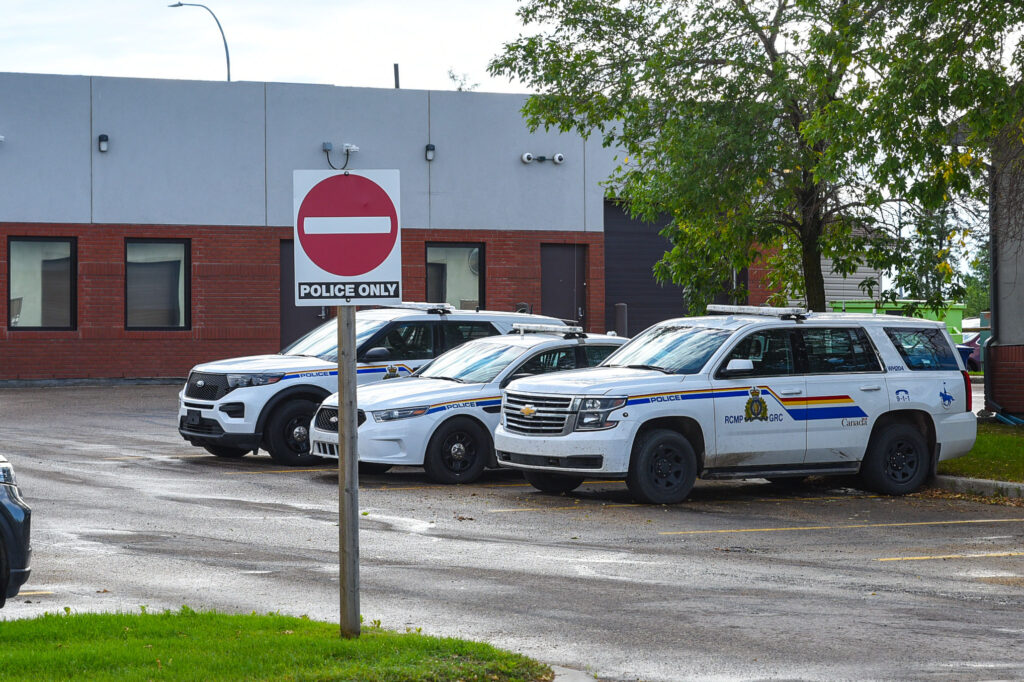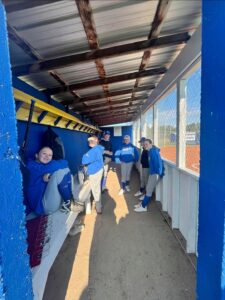
Eagle Tower Victim Services is seeking more volunteers. Program Manager Tina Prodaniuk said that Whitecourt currently has nine advocates, and Fox Creek has three. With some advocates rotating out following long stints, she hopes that people from both communities will step up to fill in the void.
The service that Eagle Tower Victim Services provides is of high importance. “You’re witnessing someone’s worst nightmare. People will sometimes ask how we can do that, and the reality is, if you can make that moment just a little bit better for them, then why not? We come in to make sure that victims are ok and that they get to where they need to go.”
When police officers have to make a house call to let the next of kin know that a loved one has passed, advocates with Eagle Tower join them. “We help navigate what those next steps are. Whether the body is going to a funeral home or the medical examiner’s office and how that will work are things they shouldn’t be phoning around to try and figure out in that moment of grief,” explained Prodaniuk.
She said that funeral planning is a different matter but helping people understand what available tools exist helps them navigate a troubled time. “It’s an awful scenario, and people are very thankful to have a soft place to land and a caring hand. Some people don’t need as much assistance, or that could have been the last person on earth that ties them to family. Every single situation is different. Ultimately, when you’re in the unit and see how much that caring heart can help somebody navigate a horrible situation, it’s a definite need in the community. I’m definitely on team Victim Services because I see the value in it, and I know that what we do makes a difference.”
Joining Eagle Tower Victim Services is a process, but the steps are necessary. “It starts with a three to six-month security clearance check. During that time, there is also a 32 module ABS100 online learning to do. We don’t have a lot of specifications because everyone comes with their own tool chest. Whether you’ve been exposed to a lot of traumas or none doesn’t make or break whether you are suitable for the job.” Prodaniuk said being compassionate is one of the most critical parts.
Being available day or night is another big one as calls can come in at any time. Crime and accidents don’t stick to only weekdays either, so volunteers are needed on weekends too. The long security check process makes sure that candidates can handle the information they might end up hearing. “We have to be able to be open and honest in a building that has a ton of FOIPP issues (the police detachment). In a small community, people know each other, and we can’t risk not trusting who we work with. That part of the process (security check) is done through the RCMP to ensure they are the right fit.”
All volunteers are armed with information and tons of support to make sure they can fulfill the role to the best of their ability. “I think it’s why people stay so long because we invest in them, and they invest in us. It’s not a regular volunteer program. We aren’t first responders, but we like to call ourselves second responders. We are those that can help pick up the pieces when something has happened. We need to be able to trust each other, and the ongoing training has to be there,” said Prodaniuk.
Advocates do not act as counsellors but are one of the first people victims see. Continued support through training is vital. “We go through some pretty heavy calls, and we do provide lengthy training whether it has to do with debriefing after the call or self-care. Like they say on an airplane, you put your oxygen mask on first. We are only good advocates and good responders if we are good ourselves. That’s where a lot of our fundraisers come in.”
Like the upcoming Anthony Gordon Memorial Golf Classic (August 23), regular fundraisers make it possible to pay for training opportunities. “We want our advocates to be trained as best as possible. Fundraisers help our community people train and ensure we are well-equipped to handle the situations, whether for our mental health or others. That’s a continuous thing. Whether it’s a conference or online training or in-person training, that’s all provided through the community fundraisers that we do,” said Prodaniuk.
“We do need to thank our community for being so supportive. We’ve been capped at our funding for over the last ten years, so without our fundraisers …” trailed off Prodaniuk. “We thankfully had a big fundraiser in 2019 that helped carry us for a bit, and the municipalities have always been generous. I think our municipalities see the value in what we are doing, and that’s a bonus.”
Those interested in entering the program can rest assured that experienced advocates will fully back them until they are ready. “We never go without two people. We always have an experienced advocate with a new trainee. We have them tell us when they are ready to go on a call.” Two to three shifts a month is the expectation so that volunteers remain current. “We do get quite a few calls. It would be harder to train people if we were in a smaller rural community where you get two or three calls a month. Here we are looking at about triple that. So, we can get people experienced quickly. In Fox Creek, which we take care of as well, it’s a little different and a little harder.”
Prodaniuk has been with Eagle Tower Victim Services for five years and said it’s an excellent program for anyone that wants to serve the community in a way like no other. “You get right down to the heart. Many people who come into the work come in because they want to help people, and then they realize how meaningful the work is. The more advocates we have, the better because then they can take a break too.” For more information, contact Tina Prodaniuk at 780-779-5924.







More Stories
Community spirit shines at large-scale youth baseball event
Birthday party chaos sung beautifully by Pumpjack Players’ youth in spring musical
Gearing up for another season of cars, cruising and camaraderie